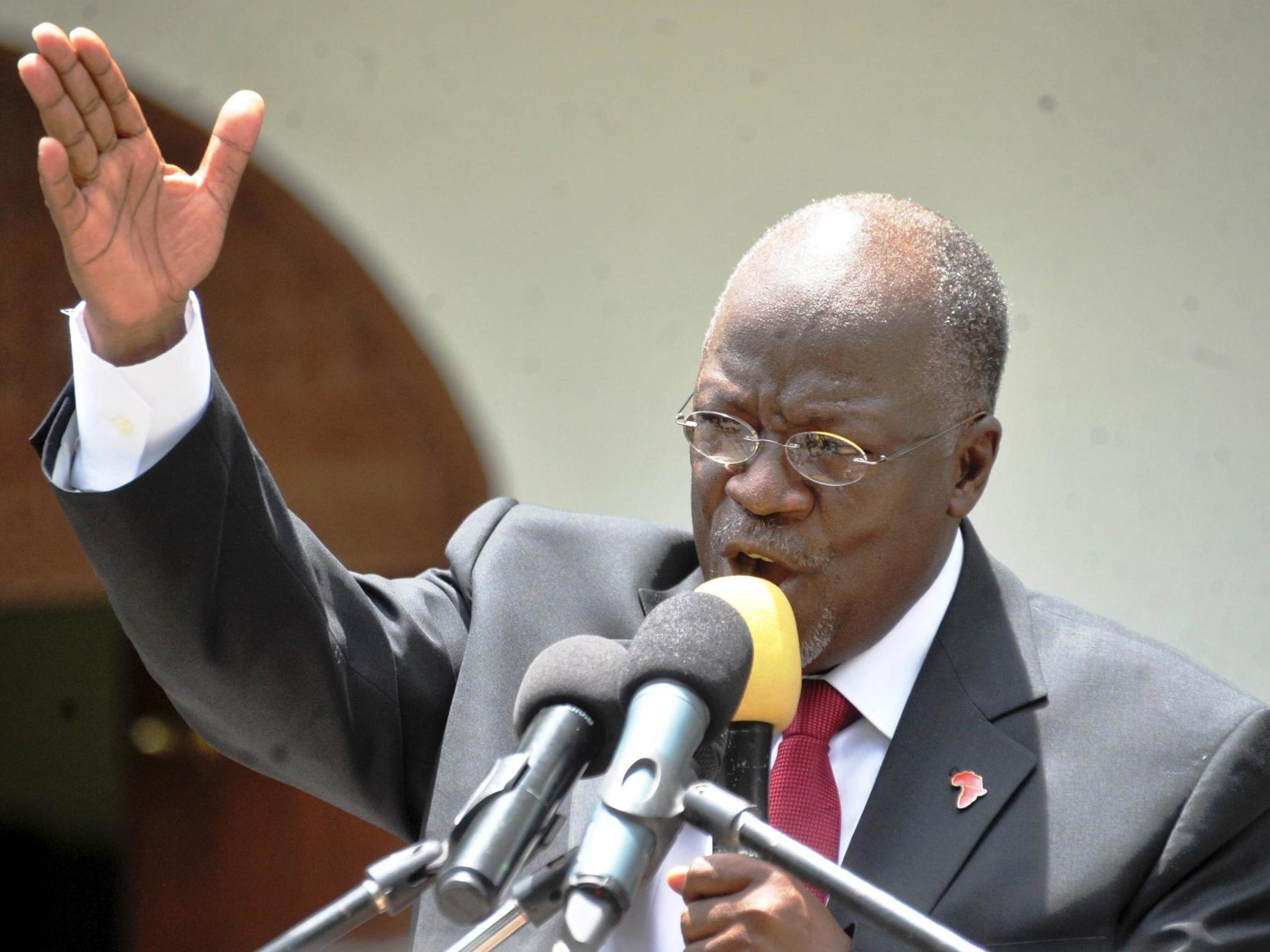EU recalls ambassador to Tanzania over ‘deterioration of human rights’ amid crackdown on gay people
East African nation’s capital city has set up a committee to identify and arrest homosexuals

Your support helps us to tell the story
From reproductive rights to climate change to Big Tech, The Independent is on the ground when the story is developing. Whether it's investigating the financials of Elon Musk's pro-Trump PAC or producing our latest documentary, 'The A Word', which shines a light on the American women fighting for reproductive rights, we know how important it is to parse out the facts from the messaging.
At such a critical moment in US history, we need reporters on the ground. Your donation allows us to keep sending journalists to speak to both sides of the story.
The Independent is trusted by Americans across the entire political spectrum. And unlike many other quality news outlets, we choose not to lock Americans out of our reporting and analysis with paywalls. We believe quality journalism should be available to everyone, paid for by those who can afford it.
Your support makes all the difference.The European Union has recalled its ambassador from Tanzania over “the deterioration of human rights and rule of law” in the East African country, where a regional official last week called for the outing and arrest of homosexuals.
The EU said it would be conducting a wide review of its relations with the nation amid fears of increased persecution of gay people.
Paul Makonda, the administrative chief of the capital Dar es Salaam, last week announced a special committee would be set up to identify and punish homosexuals, prostitutes and online fraudsters. He called on the public to report suspected gay people to authorities.
Tanzania’s foreign ministry later said Mr Makonda’s views and policies did not represent the government’s position. However, LGBT+ people have criticised the ruling administration for its slow response and for failing to condemn the city chief.
One gay man, speaking anonymously from Dar es Salaam, said: “Where was the government for all these days when Paul Makonda was calling on the public to report the names of suspected gays to be rounded up?
“People are still scared and we are keeping a low profile. We remain on edge and are waiting to see if any arrests will happen as they were expected to start from this week.”
Ravina Shamdasani, spokesperson for the UN’s human rights office, welcomed the Tanzanian government’s move to distance itself from Mr Makonda’s anti-gay campaign, but added: “We understand that LGBT individuals in Tanzania remain fearful.”
There were reports that some LGBT+ people had gone into hiding after Mr Makonda’s statement last week, either by staying in their homes during the day or seeking refuge elsewhere.
Mr Makonda claimed authorities had already been handed 18,000 messages of support for the policy from people “disturbed by moral erosion”, adding many of them also named individuals believed to be gay.
In a statement, EU spokesman Susanne Mbise said: “The EU regrets the deterioration of the human rights and rule of law situation in Tanzania and will be conducting a broad review of its relations with Tanzania.”
President John Magufuli has cracked down on homosexuality since winning power three years ago in Tanzania, where a conviction for having “carnal knowledge of any person against the order of nature” can lead to a jail sentence of up to 30 years.
Last October, at least 12 men were arrested at a Dar es Salaam hotel in a raid on an event authorities said was to promote same-sex relationships.
The United States on Saturday advised its citizens in Tanzania to review their social media and internet use and remove any material that may violate Tanzania’s laws on homosexuality.
Being gay remains taboo across much of Africa, and LGBT+ people face widespread discrimination and persecution. Rights groups in the continent are often reluctant to publicly defend homosexuality.
Join our commenting forum
Join thought-provoking conversations, follow other Independent readers and see their replies
Comments